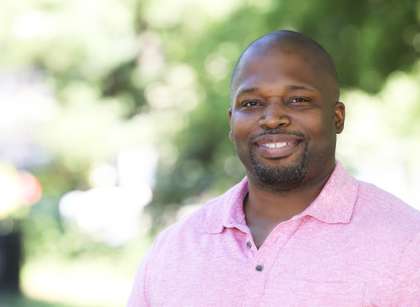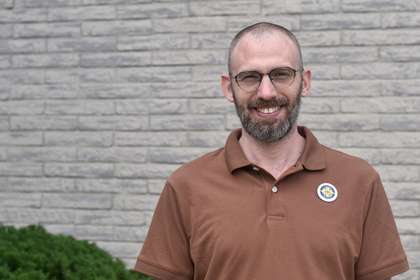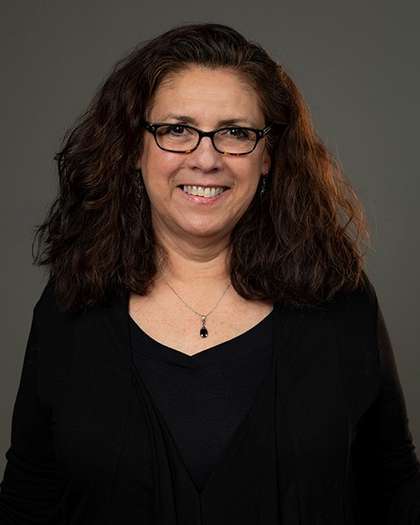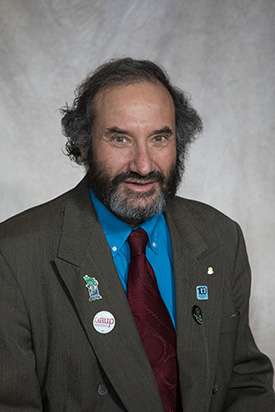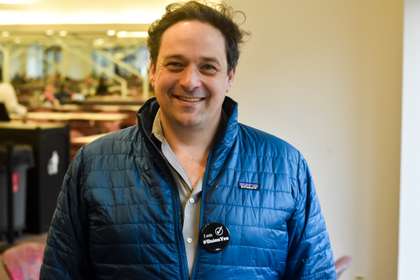Membership Information


The Connecticut State University American Association of University Professors (CSU-AAUP) negotiates the wages and working conditions for the full and part-time faculty, counselors, librarians, and coaches and trainers at the four Connecticut State Universities. It is also a professional organization, affiliated with National AAUP, which works to advance academic freedom and shared governance in addition to other issues in higher education.
At the time of hire, faculty automatically become a member of the CSU-AAUP bargaining unit. All bargaining unit members are entitled to vote on contract ratification. However, to become an active member of the organization, faculty must fill out a membership form. Active members have the right to vote in chapter elections, serve on committees, and hold office. Active members also receive discounts on various services.
Public Act 75-566 was passed in 1975, allowing state employees to bargaining collectively for their wages, hours and working conditions. At the time, small chapters of AAUP existed on each of the CSU campuses. After multiple blows to working conditions, CCSU Biology Professor David Newton saw the need for faculty to bargain collectively. Newton began a campaign to select AAUP as the exclusive bargaining agent for the faculty, counselors and librarians on the four campuses of the Connecticut State University System.
AAUP won a close runoff election against AFT. The first CSU-AAUP Contract was negotiated in 1976 and ratified on April 1, 1977. Part-time faculty, counselors and librarians were added to the unit in 1983.
During the 1970s and 1980s, CSU and CSU-AAUP faced tremendous challenges due to the effects of the lingering recession and inadequate budgets adopted by a state government that was hostile to public higher education. Although Connecticut was one of the wealthiest states in the union, governors and legislators from both political parties ensured that Connecticut remained at the bottom of the list when it came to spending on its public colleges and universities.
CSU-AAUP worked diligently throughout this period to enhance salaries and fight off the damaging effects of budget cuts. As early as 1979, CSU-AAUP led a successful campaign to restore budget cuts while successfully negotiating CSU’s second contract that provided significant salary increases as well as enhanced health and pension benefits.
CSU-AAUP has consistently been an active participant in the efforts to preserve and enhance state funding for Connecticut’s public colleges and universities while fighting for better salaries and benefits for the state’s employees.
In 1986, a coalition of state employee unions was formed, now known as SEBAC or the State Employees Bargaining Agent Coalition. This group collectively bargains with the state of Connecticut on healthcare and pension benefits. From day one, CSU-AAUP has played a leadership role within that organization.
The CSU-AAUP Contract, currently in its eleventh version, is often cited as a model contract by the National AAUP as it contains not only the typical components of a collective bargaining agreement, but it also includes portions of the AAUP statements on academic freedom and shared governance. This makes the CSU-AAUP Contract one of the most comprehensive in the nation.
Many challenges still lay ahead for CSU-AAUP. Issues such as an escalating faculty workload, the corporatization of universities, decreasing state support for colleges and universities, and declining numbers of full-time faculty threaten to damage the integrity of higher education institutions across the nation. It is only through collective action that we can hope to defend ourselves against these threats.
Staff who serve all four campuses of CSU-AAUP.
Based at Southern
CSU-AAUP has four officers and 30 council members.
Central, History
Southern, English
Central, Sociology
Eastern, Economcis
Central President, Biochemistry
Central, Anthropology
Central, Sociology
Central VP, Sociology
Central, Sociology
Eastern, Art
Eastern Vice President, Sociology & Criminology
Eastern, Economics
Eastern President, Psychology
Eastern, Biochemistry
Eastern, Education
Southern, Political Science
Southern First VP, Curriculum & Learning
Southern, English
Southern, English
Southern, English
Southern President, Library
Southern, Health & Movement Sciences
Western President, Sociology
Western, History
Western, Philosophy
Western, Biology
Western, Social Work
Western, Ed Leadership
Western, History
Central, Social Work
Eastern, Sociology
Western, History

